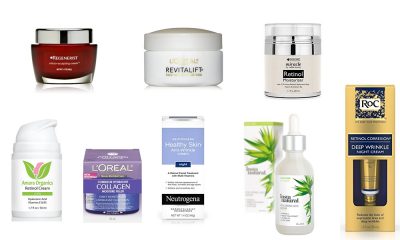
The trend toward tanned and sunkissed skin has certainly been promoted by the media in the last few decades, but this does not in any way diminish the natural beauty and radiance of a fairer complexion.
From Nicole Kidman and Julianne Moore to Emma Stone and Cate Blanchet, many of our most notable and celebrated actresses have embraced their lighter skin tone and reminded us that all skin types are beautiful and worthy of praise.
With so much of our makeup and beauty ideals targeted toward achieving a bronzed glow, it can be difficult to know how to make the most of your lighter features. In this article, we will explore some helpful ways to keep your skin radiant throughout the year.
Skincare Routine
A good skincare routine consists of cleansing, toning and moisturizing your skin each day.
Cleansing
Begin by washing your face with a gentle cleanser to remove impurities and unclog your pores. This will also help to reduce unwanted breakouts or acne, and any dullness to your complexion. The right facial wash should cleanse your skin without stripping it of essential oils or dry it out.
A good tip is to look for a non-comedogenic cleanser, which means it will not block or clog up your pores. This is ideal if your skin is prone to breakouts or if you have combination skin.
Toning
Adding a toner to your skincare routine can protect your skin from the elements and help to close and tighten your pores after washing. It will also remove impurities from the day such as oil, dirt, and bacteria as well as any last traces of makeup. A good toner can help to hydrate and nourish your skin priming it for absorbing the ingredients in your moisturizer. When choosing a toner for your skin, look for some of the following ingredients:
- Beta hydroxy acid (BHA) or Alpha hydroxy acid (AHA): This will help to unclog your pores by gently removing dead skin cells, minimize the appearance of blackheads and prevent breakouts.
- Hyaluronic acid: helping to hydrate and moisturize your skin, this ingredient can prevent the onset of fine lines and wrinkles.
- Rose water: This ingredient can soothe your skin from irritation due to its anti-inflammatory properties.
- Vitamin C and E: Together, these antioxidants can protect your skin from sun damage and free radicals.
Moisturizing
The purpose of a moisturizer is to hydrate your skin and provide it with the nourishment needed to remain soft, supple and plump. A good moisturizer does this by increasing the water content of your skin and reducing transepidermal water loss.
When selecting a moisturizer, an oil-free lightweight product that is gel-based can be a good place to start as it won’t overpower your skin and leave it feeling oily or clogged. One of the most important things to look for in a moisturizer is one with a ceramide base. Ceramides are fatty acids, or lipids which are naturally found in the outermost layer of your skin and help from the skin barrier. By moisturizing and replenishing this barrier, ceramides help your skin retain its moisture protecting it against water loss as well as harmful pollutants and extreme weather conditions.
Depending on where you live, you may find a thicker cream-based moisturizer is beneficial for your skin in the colder months, when it can be prone to drying out. Some of the ingredients to look for in a moisturizer include vitamin E, hyaluronic acid, glycerine and pro-vitamin B5.
Sun Protection
Sun protection is important for every skin type but none more than for pale or fair skin which is more sensitive to the sun and more likely to burn. UVA light comprises Ultraviolet A (UVA) and Ultraviolet B (UVB) radiation which are both harmful for the skin.
Approximately 95% of UV rays that reach the earth are UVA rays which can lead to premature aging of the skin while the remaining 5% of UVB radiation can cause the skin to burn. Too much exposure to UV light can also contribute to cancer, so it is essential to protect your skin by wearing a sunscreen that offers protection against both types of UV radiation. This is known as broad spectrum protection.
Wearing a broad-spectrum sunscreen with an SPF of at least 30 is something you should do every day to prevent sun damage to your fair skin. You can apply this separately as a sunscreen or opt for a moisturizer that has SPF protection included. It’s important to do this even on days when it is not sunny as 80% of UV rays can still penetrate through cloud cover. Apply your sunscreen about 15 minutes before heading outside to give it enough time to activate.
In addition to sunscreen, it’s important for people with fair skin to take other sun protection measures. Where possible, opt for the shade and invest in a wide-brimmed sun hat to protect your hair, head and neck. Read more about protective hairstyles for white hair. Sunglasses are also a must to protect your eyes and delicate eye area from the sun and try to cover your delicate skin with loose fitted, long sleeves, long skirts or pants on days when the sun is at its strongest.
Eat Foods for Healthier Skin
Beauty begins from within and a healthy, radiant complexion will reflect your overall health and well-being. To support your beauty efforts it’s important to also take care of your diet and eat foods for healthy skin. A nutritious and balanced diet that is rich in vitamins, minerals and antioxidants will help to boost your skincare regimen and enhance your complexion.
Foods that are high in omega-3 fatty acids such as fish, nuts and seeds, as well as vitamin E found in leafy greens like spinach and kale are especially beneficial for your skin. Foods that contain high levels of antioxidants are also great for supporting your skin, and include foods such as blueberries, tomatoes and green tea. Taking a daily multivitamin is another great way of ensuring your skin is receiving the nutrients it needs to remain healthy and vibrant.
By following the guidance in this article, you can help support your skin and do wonders for your overall beauty and appearance.






